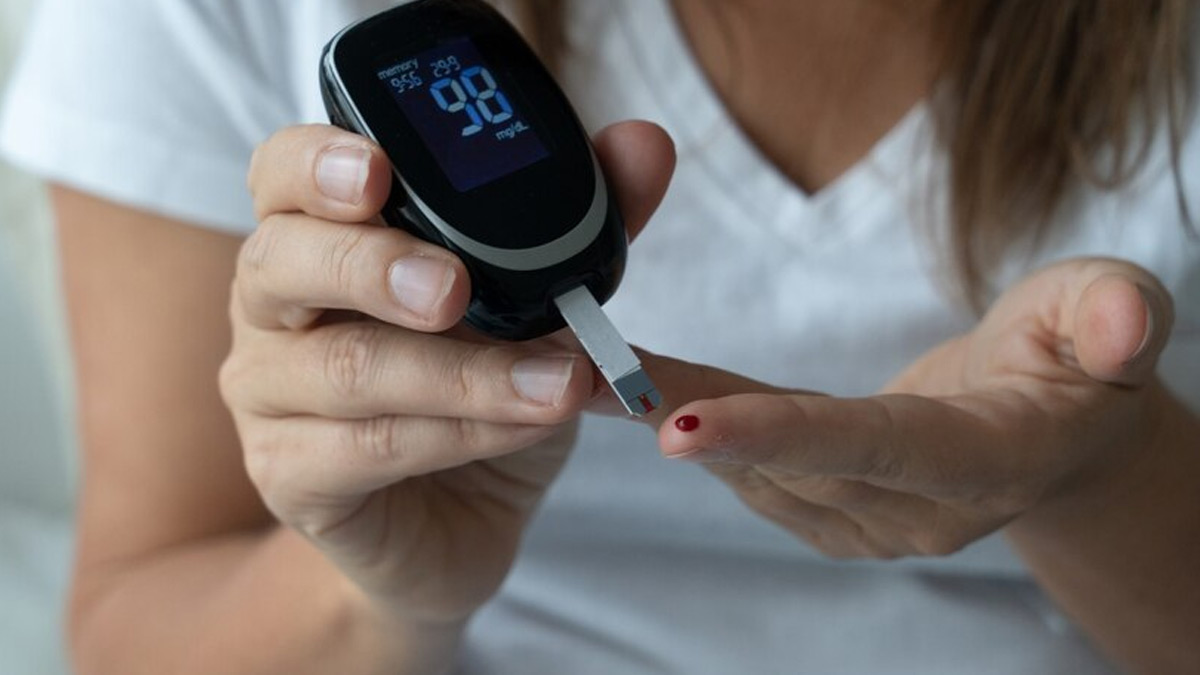
Living with diabetes is a challenge in itself, and when pregnancy comes along, it calls for even greater attention, care, and preparation. On the occasion of World Diabetes Day 2025, which is celebrated every year on November 14, this year it's all about empowering women living with diabetes to have healthy pregnancies. In an exclusive interaction with the editorial team of Onlymyhealth, our expert explained that with adequate planning, monitoring, and medical support, women with diabetes can enjoy an uncomplicated and safe journey to motherhood. Read ahead to know what he shared with us.
Table of Content:-
Why Diabetes Needs Special Care During Pregnancy
Pregnancy brings about hormonal changes that alter the way the body utilises insulin. In the case of women with diabetes, be it Type 1, Type 2, or gestational, these changes make the management of blood sugar levels more difficult. According to Dr Ankush Raut, Infertility Specialist, Obstetrics and Gynaecology, Apollo Fertility, Mumbai, poor control of diabetes in pregnancy may increase the risk of complications such as preterm birth, excessive birth weight, miscarriage, or congenital anomalies.
Also Read: Is Your Lifestyle Raising Your Gestational Diabetes Risk? Find Out Here

Tips To Boost Odds of a Healthy Pregnancy
He further explained, “When blood glucose levels are kept within target ranges before and during pregnancy, the risks to both mother and baby are significantly reduced. It's all about preparation and consistent monitoring.”
1. Prioritise Preconception Planning
The journey towards a healthy pregnancy begins before conception. Women with diabetes are advised to consult their endocrinologist and gynaecologist before conception. “We advise at least three to six months of optimal glycemic control before trying to conceive,” shared Dr Raut.
Medications must always be reviewed by doctors, as some oral anti-diabetic drugs are not advised during pregnancy. Secondly, insulin therapy may be preferred for better control and safety, and supplementation of folic acid should be initiated early to minimise the risk of neural tube defects in the baby.
2. Keep Blood Glucose Under Control
During the entire course of pregnancy, blood glucose monitoring should be carried out on a regular basis. “Self-monitoring and CGM systems can be quite useful,” advised Dr Raut. The aim is to keep fasting glucose less than 95 mg/dL and post-meal below 120 to 140 mg/dL as per the doctor’s advice.
High blood sugar levels, especially in the first trimester, may interfere with the organ development of the baby. Hence, early and consistent control matters the most.
3. Eat Smart and Have a Right Nutrition Plan
Diet plays a main role in managing diabetes during pregnancy. According to Dr Vamshi, following a diet packed with complex carbohydrates, fiber, lean protein, and healthy fats is essential. "Small, frequent meals can prevent sugar spikes. Avoid processed foods, sugary drinks, and refined carbs," he recommended.
This includes food that contains oats, lentils, brown rice, nuts, and green vegetables, which will help maintain steady glucose levels. A registered dietitian specialising in diabetes and pregnancy can provide personalised meal planning.
Also Read: 7 Ways Poor Air Quality Can Disturb Your Pregnancy

4. Stay Active, But Safely
Moderate physical activity is recommended unless your doctor advises against it. Light exercises like walking or prenatal yoga and swimming help to stabilise blood sugar and contribute to a healthy weight gain. “Exercise enhances insulin sensitivity and reduces the need for higher doses of insulin,” said Dr Raut.
However, overexertion should be avoided, and one should check the blood glucose before and after exercising to avoid hypoglycemia.
5. Monitor and Manage Complications
Since diabetes is a risk factor for hypertension and preeclampsia in pregnancy, regular testing of blood pressure, kidney functions, and eyesight should be done. Ultrasound scans and fetal monitoring should be carried out as recommended by the doctor.
"The key is teamwork, between the endocrinologist, obstetrician, and patient. When all parameters are tracked consistently, the chances of a healthy pregnancy and delivery are very high," added Dr Raut.
Bottomline
With proper medical advice, healthy lifestyle options, and regular checkups, women with diabetes may have a safe pregnancy and be able to give birth to a healthy baby. Expert suggests that it is always better to plan ahead and be consistent.
Also watch this video
FAQ
1. Can women with Type 1 or Type 2 diabetes have a normal pregnancy?
Yes, with appropriate planning, glucose control, and medical supervision, women with both Type 1 and Type 2 diabetes can have healthy pregnancies with normal deliveries.2. Is insulin safe during pregnancy?
Absolutely, insulin is safe and usually is one of the first-line treatments in the management of blood sugar in pregnant diabetic patients.3. Does gestational diabetes go away after the delivery?
In most cases, yes. Gestational diabetes usually goes away after childbirth; however, women are recommended to go for regular screening since they're at a higher risk of developing Type 2 diabetes later in their lives.
How we keep this article up to date:
We work with experts and keep a close eye on the latest in health and wellness. Whenever there is a new research or helpful information, we update our articles with accurate and useful advice.
Current Version
Nov 13, 2025 16:59 IST
Modified By : Tanya SrivastavaNov 13, 2025 16:59 IST
Published By : Tanya Srivastava
